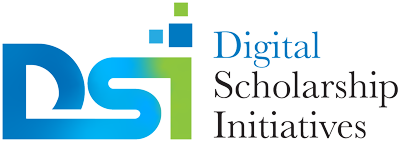Working book title: Privacy and Safety in Remote Learning Environments
Proposal submission deadline extended: February 7, 2022
Interdisciplinary perspectives are highly encouraged
Overview
Online education is not a new phenomenon, but the Covid-19 pandemic caused a sudden and widespread shift online for many K-12 schools and higher education institutions that had little prior experience with it. Even as schools return to in-person classes, online platforms remain prevalent as backup and supplemental content delivery tools. While privacy issues related to education are not new, the sudden shift to online learning brought these concerns into sharp focus for many parents, educators, administrators, and researchers.
The objective of this book is to reflect on the unintended breaches of privacy, safety, and security that occurred during the rush to move classes online, and to examine and propose solutions for more responsible future use of the platforms.
This book will document how educational institutions approach privacy regarding students and educators, describe privacy initiatives implemented in response to online learning, and contribute to the growing discussion of how privacy and surveillance impact our users, especially students from our most vulnerable populations.
We encourage a broad range of contributions, including original research, case studies, pedagogical approaches, and critical reflection papers. We especially encourage contributions from K-12 and higher education educators, research centers, museums, and libraries that facilitate online learning or online curriculum, and from underrepresented and historically marginalized racial, social, and/or class groups. Interdisciplinary perspectives are highly encouraged.
Topics may include but are not limited to:
- Privacy policies of 3rd party EdTech platforms (Google Classroom, Microsoft Teams, Schoology, etc)
- Parental “spying” and classroom privacy
- Family privacy and synchronous online schooling
- Online harassment among students (private chats, doxing, social media, etc)
- Cameras in student private spaces
- Surveillance of student online activities
- Exam proctoring software and privacy concerns
- Personally Identifiable Information in online learning systems and susceptibility to cybercriminals
- Privacy, storage, and deletion policies for recordings and data
- Handling data removal requests from students
- Appointing a privacy expert in schools, universities, or districts
- How and why to perform security/privacy audits
- Student attitudes about online privacy
- Instructor privacy/safety concerns
- Libraries: privacy policies of ebook platforms
- Libraries: online reference services and transcripts
- Identity authentication best practices
- Learning analytics and “big data” in higher education
Submission Procedures:
Potential contributors are invited to submit proposals of not more than 500 words for chapters of 3,000-5,000 words (not including tables/figures and references). All submitted chapters will be reviewed by at least two peer-reviewers on a double-blind review basis. Contributors may also be requested to serve as reviewers for this project. Inquiries should be sent to the editors and proposals submitted via the submission form (link below).
Tentative timeline- (adjusted for deadline extension):
February 7, 2022 / Chapter proposals due
February 21, 2022 / Authors notified
May 21, 2022 / Final chapters due
July 10, 2022 / Post peer-review, final edits from editors/authors due
Fall 2022 / Book published
Submission form at https://mtsu.libwizard.com/f/BookCFP2022 (extended deadline of 2/7/2022)
About the Book
The book is published by Digital Scholarship Initiatives (DSI) at the James E. Walker Library, Middle Tennessee State University. DSI has been publishing peer-reviewed journals and hosting scholarly and creative works at MTSU since 2014. The book has no submission nor acceptance fees for manuscripts and will be published open access (free to read online), while also available as a print-on-demand option. Chapter contributions are published under a Creative Commons Attribution-NonCommercial license (CC BY-NC 4.0).
About the Editors
Denise Quintel (denise.quintel@mtsu.edu) and Amy York (Amy.York@mtsu.edu) are faculty librarians at the James E. Walker Library at Middle Tennessee State University. Collectively, the editors have a wide range of experience in web services and instructional technology. Please contact them with any questions.
Printable copy of the CFP (PDF)
